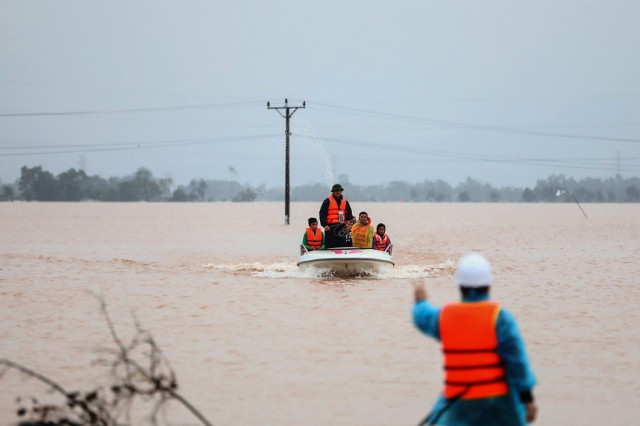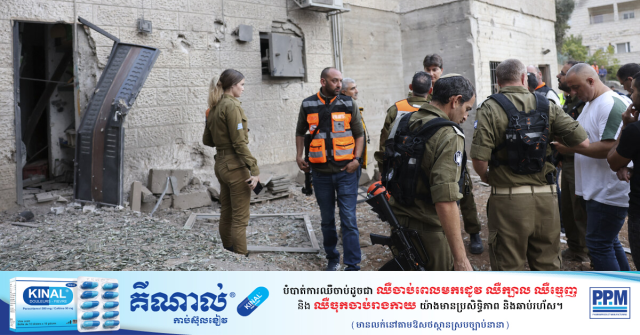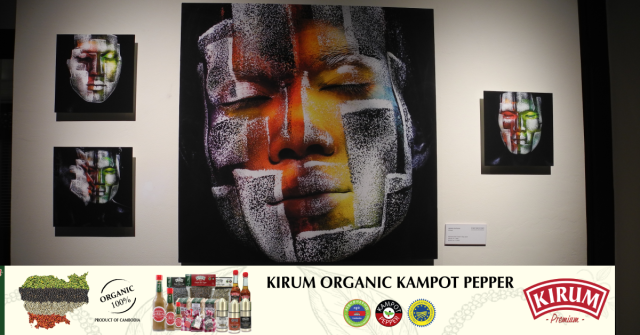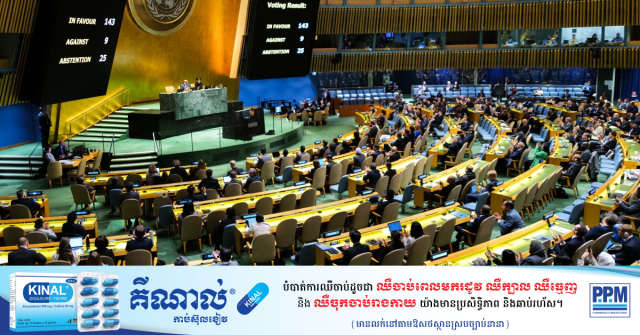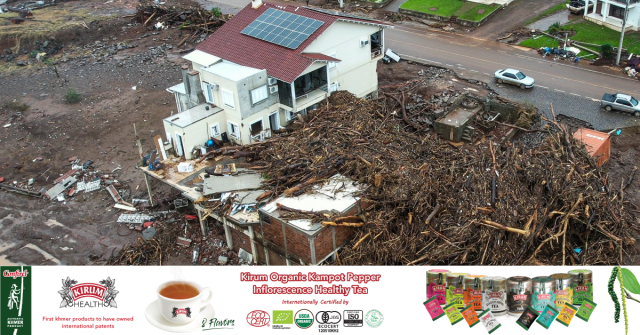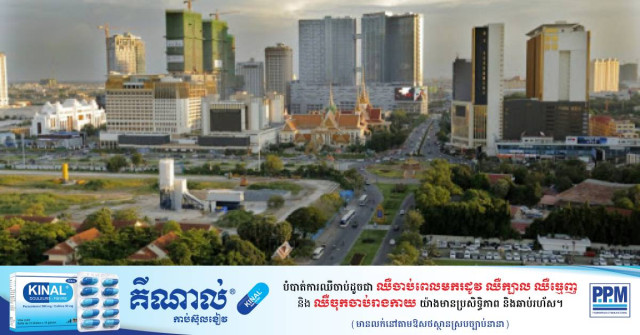Kandal Farmers Call on PM Hun Sen to Intervene in Land Dispute with OCIC
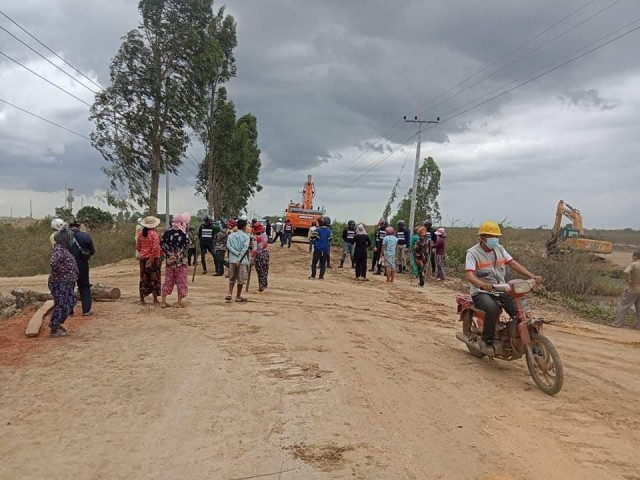
- By Lay Sopheavotey
- August 11, 2021 2:23 PM
Having already dragged on for three years, the Overseas Cambodia Investment Company is reportedly offering farmers just $8 per square meter for land to build the $1.5 billion new international airport
PHNOM PENH--Farmers in Kandal Province have refused to accept compensation from the Overseas Cambodia Investment Company (OCIC) saying that $8 per square meter is less than 10 percent of the market value of their land.
Having dragged of for nearly three years, the land dispute between the OCIC—which plans to develop a new international airport—and the farmers of Kandal Province’s Kandal Stung District who are calling on Prime Minister Hun Sen to intervene and guarantee them a fair price for their land.
On Aug. 9, the dispute almost spilled over into violence, according to Khem Maly—a farmer who has lived in Kandal Province her entire life—who said that the OCIC sent bulldozers to the disputed land which led the community to rise up and block the road. After the farmers refused to move, the bulldozers left with a message for the OCIC: re-evaluate the compensation packages for farmers.
“The authorities are on the side of the rich and powerful, if they want to help the people, this isn’t how they should do it,” she said. “But they only forcing people to accept the $8 per square meter that the company offers, it’s just to help the state.”
Maly said she and the other affected farmers have legal land titles and as such the price OCIC should pay for their land must meet current market value.
“We can’t accept it otherwise,” she added.
The situation has reached the point where farmers are now taking it in turns to guard the land. According to Suong Pov, who owns 3 hectares of land in Kandal Stung District, the farmers fear that the OCIC will send in bulldozers to clear the land while people sleep.
He stressed that the farmers are not protesting the development of the new airport, but rather they demand fair and reasonable compensation, which is far greater than $8 per square meter. Pov estimated that his land is worth between $70 and $150 per square meter and said he will refuse to accept the current offer from OCIC.
“I call on the company, have a representative who has the right to negotiate the price of our land, the authorities and our team with only five to 10 representatives to study the market price of land,” he said. “Let’s negotiate with each other to resolve this as soon as possible, we do not want to sleep here guarding our land day and night.”
The problem, as Pov pointed out, is that soaring land prices around the city of Phnom Penh and subsequently Kandal Province have already priced many low-income families out of their areas and the compensation offered by OCIC will not be enough to relocate to another nearby plot of equal size.
“For $8, if I sell my 3 hectares of land, I will not be able to buy land nearby,” said Pov. “So we can only struggle to death, just to be able to live on our land. We ask Samdech Hun Sen to help examine this land issue because we see that the sub-national authorities seem can't solve it.”
Kandal Provincial Governor Kong Sophoan said tha Kandal Stung district authorities were investigating the dispute, but refused to take any action over it as he claimed the price of the land was set by the OCIC, not the local authorities.
Ouch Sao Voeun, governor of Kandal Stung District, claimed that authorities have already settled the dispute then told reporters he was very busy in a meeting before hanging up.
Similarly, Pung Kheav Se—chairman of the OCIC—also said he was in a meeting. It is unclear whether Keav Se and Sao Voeun were in the same meeting.
OCIC Deputy General Director Touch Samnang claimed that he was not aware of the land dispute because he was not in charge of the new airport project which is set to cost $1.5 billion and cover some 2,600 hectares of Kandal Province.
Additional reporting by Phoung Vantha








